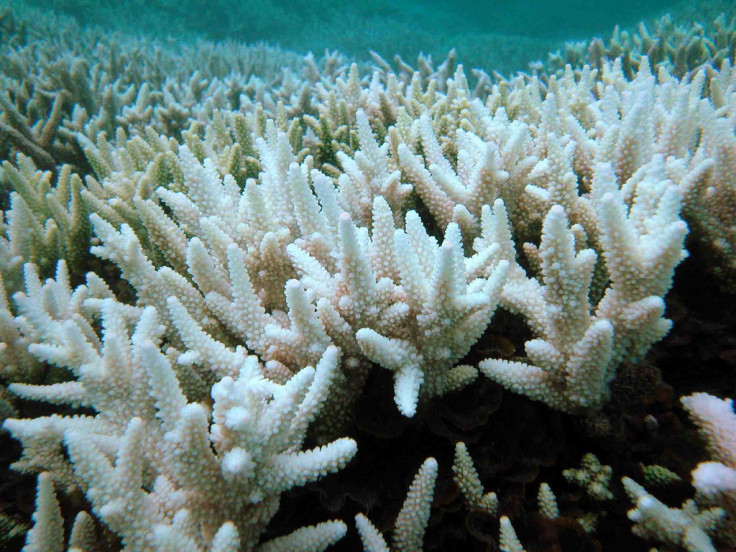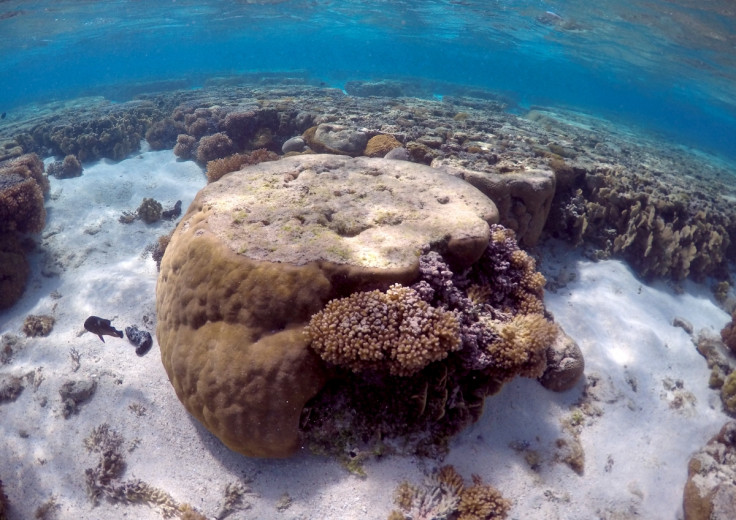Scientists alarmed by 'extreme' coral bleaching in Australia's Great Barrier Reef

The Great Barrier Reef is in the throes of its worst recorded bleaching event, scientists say, as climate change continues to take its toll on one of the great wonders of the natural world. Australia's National Coral Bleaching Taskforce says 95% of the northern reefs extending from Cairns to Papua New Guinea are now severely bleached.
Bleaching occurs when corals are stressed by adverse changes in conditions such as temperature, light or nutrients, which forces them to expel algae living in their tissues. The result is corals gradually losing their colour before turning completely white.
Corals are known to recover from bleaching but if the algae loss is prolonged and the stress continues, they eventually die.
Scientists say the latest bleaching event – the third since 1998 – is being driven by abnormally high sea temperatures triggered by climate change. Only four of the 520 reefs surveyed by scientists in the northern Great Barrier Reef showed no evidence of bleaching.
Irreversible change
"This will change the Great Barrier Reef forever," Professor Terry Hughes, a coral reef expert based at James Cook University, told Australian broadcaster ABC.
"We're seeing huge levels of bleaching in the northern 1000-km stretch of the Great Barrier Reef.
"It's too early to tell precisely how many of the bleached coral will die, but judging from the extreme level even the most robust corals are snow white, I'd expect to see about half of these corals die in the coming month or so."
The survey calls into question United Nations heritage body Unesco's decision to not put the world's largest living ecosystem on its danger list last year.
The decision was largely influenced by Queensland government's ambitious Reef 2050 Long-Term Sustainability Plan, which has identified improving the reef's water quality as one of the keys to restoring its health.

Dr Jodie Rummer, marine biologist at James Cook University, said she was appalled by the condition of the corals after more than a month of surveying the northern Great Barrier Reef.
"I witnessed a sight underwater that no marine biologist, and no person with a love and appreciation for the natural world for that matter, wants to see," she stated. "The bleaching now is not just restricted to the hard corals. There's also extensive bleaching in the soft corals, and it is also affecting anemones and giant clams."
Professor Justin Marshall from the University of Queensland told ABC: "What we're seeing now is unequivocally to do with climate change. The world has agreed, this is climate change, we're seeing climate change play out across our reefs."
© Copyright IBTimes 2025. All rights reserved.






















